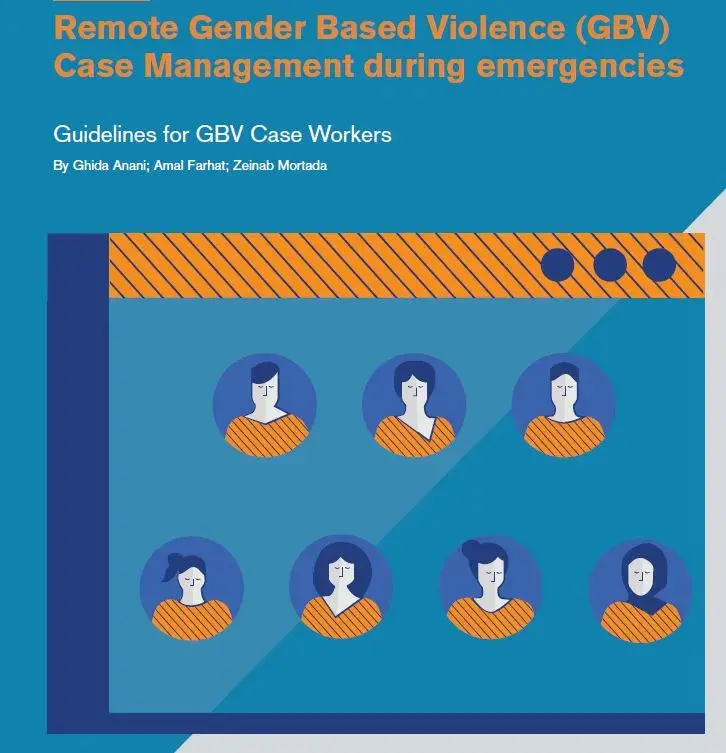Due to the COVID-19 pandemic, curfews, quarantines, and similar restrictions (variously described as stay-at-home orders, shutdowns or lockdowns) have been implemented in most countries around the world. Evidence has shown that circumstances under curfews and lockdowns have increased the risk factors for Gender-Based Violence (GBV) at the individual and social levels due to isolation and barriers to survivors and people at risk in seeking help and reporting their situation.
As this foreword is being drafted, it is estimated that millions of women and girls are compelled to stay in their houses with their abusers with limited or no access to resources and/or support. The limited access to assistance during the lockdowns increased the survivors’ vulnerability, thus the urgent need for unconventional and innovative modes of GBV service delivery and specifically case management emerged.
The Remote Gender-Based Violence Case Management guide developed by UNFPA Lebanon in partnership with ABAAD is a comprehensive tool that organizations, caseworkers, and their supervisors can benefit from to accommodate for survivors’ needs including during emergencies. In addition, this guide can be used by caseworkers during the restricted mobility - due to the pandemic - but can also be considered in regular situations where some survivors and people at risk are unable to seek support in person and therefore can benefit from remote services on a case-by-case basis. Hence, this guide can be useful during humanitarian/emergencies as well as development times.
The survivor-centered approach has been adopted throughout the guide with the aim to provide maximum safety for beneficiaries taking into consideration the challenges that might emerge in remote modalities. Interestingly, this guide doesn’t provide a “one-size-fits-all” kind of modality and each case is considered unique. While a lot of survivors and people at risk might benefit from the remote GBV case management services, other survivors prefer to benefit more from face-to-face interaction. The decision around the most suitable and beneficial modality is made jointly by the case worker and the survivor and person at risk while assessing the pros and cons of each modality in their specific case.
Since maintaining the wellbeing of GBV caseworkers has been an area of critical concern, the guide offers tips and recommendations to promote their mental and emotional fitness.
In sum, this guide provides details about a flexible and adaptive approach to ensure that critical and lifesaving GBV services are made available without compromising the safety of caseworkers and/or survivors and people at risk.
Asma Kurdahi
Head of Office, UNFPA
2021


